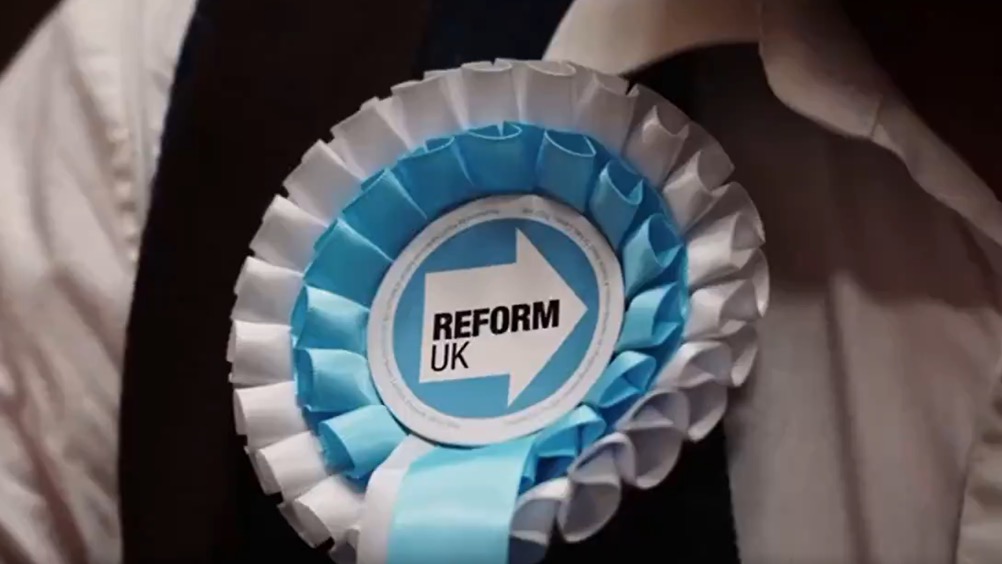In a dramatic twist to the run-up to the May 1 local elections, a Reform UK campaign sign was vandalized in Nottinghamshire, raising concerns about escalating political tensions and underhanded tactics. The incident occurred in the Selston ward, a highly contested area where Reform UK is making a serious push to expand its local influence. With the party already under the spotlight for its rising popularity, this act of vandalism has added fuel to an already heated electoral climate.
Ashfield MP and Reform UK Chief Whip Lee Anderson did not hold back in his response. He labeled the incident as part of a series of “dirty political tricks,” vowing that Reform UK’s campaign would not be derailed by such actions. As the party seeks to capitalize on growing discontent with the Conservatives and Labour, every headline—good or bad—is helping shape public opinion and turn the May elections into a battleground for political legitimacy.
This article dives deep into what happened in Selston, how Lee Anderson and the party reacted, and what this incident says about the broader state of UK politics heading into one of the most closely watched local elections in years.
What Happened in Selston?
Selston, located in Nottinghamshire, has emerged as a hotspot for political activity in the lead-up to the May 1 local elections. Reform UK, which has steadily gained support across the region, had installed a large sign that read: “On Thursday, May 1 – Vote Reform UK.” However, the sign was recently discovered defaced and partially destroyed, leaving only the word “Vote” intact.
The act was clearly intentional and designed to obscure the party’s branding during a crucial phase of the campaign. Photos of the damaged sign quickly circulated online, drawing condemnation from party members and supporters who saw it as more than simple vandalism—it was viewed as a political message.
In the world of political campaigning, signs are more than just advertising—they’re symbolic. They represent visibility, momentum, and grassroots support. Tearing down such a sign, especially in a high-stakes ward like Selston, is not only a crime but also a statement, one that reflects deeper tensions brewing within the local political landscape.
While no one has claimed responsibility for the incident, the message it sends is clear: the battle for Nottinghamshire’s future is being fought not only on debate stages and doorsteps but also through sabotage and smear.
Lee Anderson’s Response
Never one to mince words, Reform UK’s Lee Anderson responded swiftly and sharply to the incident. In a statement that made headlines and dominated social media feeds, the MP said:
“This is in the Selston Ward where dirty political tricks are rife. You will not stop us.”
Anderson’s words struck a chord with Reform UK’s base, many of whom already view the party as a victim of political bias and establishment pushback. His response framed the incident not just as vandalism, but as part of a broader effort to undermine Reform UK’s rise.
Anderson, a former Conservative MP who defected to Reform UK in a high-profile move, has positioned himself as a vocal champion of the “common-sense majority.” His tough-talking style resonates with many disaffected voters, particularly in former Red Wall constituencies.
In this case, Anderson’s fiery response served two purposes: condemning the act of vandalism while also rallying the party faithful. It underscored the party’s resilience in the face of opposition and further entrenched its narrative of being under siege by the political elite and their allies.
Supporters took to platforms like Facebook and X (formerly Twitter) to echo Anderson’s sentiments. One user wrote, “They’re scared because they know Reform is gaining ground. Stay strong, Lee!” Others criticized local authorities for failing to prevent such actions and called for increased security and oversight during the election season.
Reform UK’s Growing Presence in Nottinghamshire
Far from being a fringe incident, the vandalism in Selston reflects the rapidly changing political landscape in Nottinghamshire. Reform UK is not just contesting a few seats—it’s emerging as a serious force in local governance.
According to recent projections from Electoral Calculus, Reform UK could expand its presence from just one councillor to as many as 24 across the region. If this holds true, it would position the party as the largest political group in the county council—a seismic shift in local politics.
Nottinghamshire has traditionally been a battleground between the Conservatives and Labour. But with rising disillusionment among voters, Reform UK has seized the opportunity to appeal to those fed up with the status quo. Campaigning on a platform that combines anti-establishment rhetoric with tough stances on immigration, crime, and economic reform, the party has struck a chord with voters in areas like Ashfield, Mansfield, and Selston.
This momentum explains why tensions are running high. Incidents like the sign vandalism are not isolated—they’re symbolic of the growing threat Reform UK poses to traditional power structures in both local and national politics.
Election Forecast and Current Projections
The numbers paint a clear picture of why the upcoming local elections are so critical—and why the stakes are so high for Reform UK.
Here’s how the council numbers stood after the 2021 elections:
- Conservatives: 37 seats
- Labour: 15 seats
- Reform UK: 1 seat
Now, here are the updated projections from Electoral Calculus for May 2025:
- Reform UK: 24 seats
- Labour: 18 seats
- Conservatives: 13 seats
If these numbers hold true, Reform UK won’t just be a participant—they’ll be the frontrunner.
The Selston ward, in particular, is viewed as a litmus test for the party’s reach beyond Ashfield. Winning there would not only boost their local authority but also send a strong signal to Westminster that Reform UK is more than a protest vote—it’s a growing political force.



